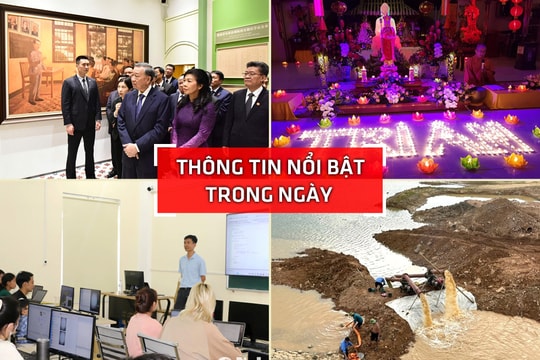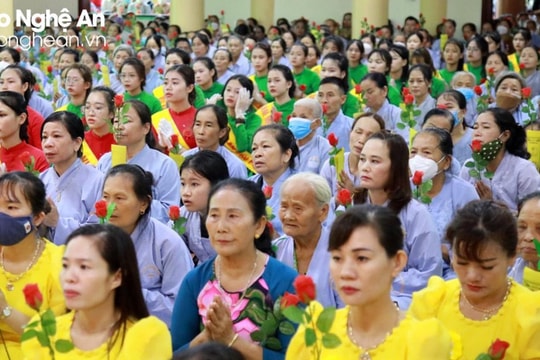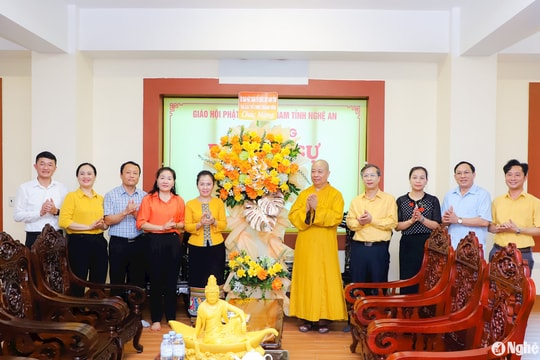Learn about Vu Lan festival in Asian countries
(Baonghean.vn) - Vu Lan Festival is a filial piety festival, a typical tradition of East Asian culture. In Asia, there are many countries that celebrate Vu Lan Festival such as Vietnam, China, Japan and there are also countries that celebrate the festival with similar meaning. We invite you to learn about this beautiful tradition in the countries surrounding our Vietnam.
China
The fifteenth day of the seventh lunar month is called the Ghost Festival in China. They call this the Ghost Day, the day when ghosts and souls, including grandparents and ancestors, return from the underworld. Therefore, this is also the day for descendants to pay their respects to their deceased relatives.
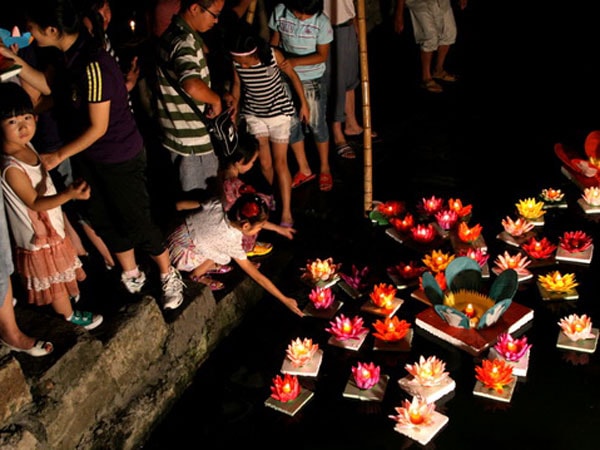 |
| Chinese people release lotus lanterns on Vu Lan festival. |
Filial piety activities are prepared throughout the entire seventh lunar month in China. In addition, Chinese people also prepare thoughtful vegetarian meals and leave empty seats for each deceased family member as if they were still alive.
Along with that are spiritual activities such as worshiping, burning incense, burning votive paper. The Chinese believe that on the 15th day of the 7th lunar month, the gates of heaven and hell will open for the deceased to visit their homes, and it is also the day for Buddhism to absolve the deceased of their grievances.
Taiwan
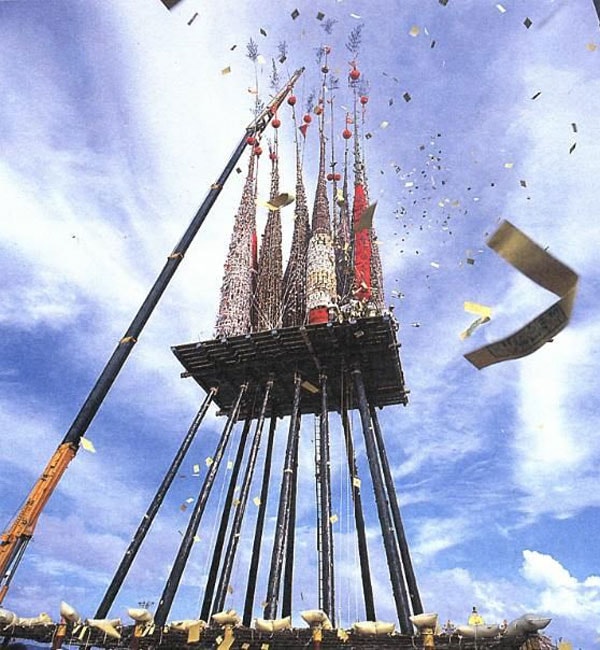 |
| Unique looting ceremony of Taiwanese people on Vu Lan day. |
Taiwan also celebrates Vu Lan festival similar to China. On this day, children visit and clean the tombs of their ancestors so that they can bless them with a prosperous and happy life. However, in Taiwan, there is a very unique activity on Vu Lan day: looting.
The offerings are then hung on a tall, greased pole. Then, many people compete to see who can steal the offerings first. The stolen items symbolize the good luck bestowed by the gods. However, because this activity is too dangerous, Taiwan has banned it. Instead, there are ghost processions and lion dances on the holiday.
Korea
Like China and Vietnam, filial piety day in Korea is also the 15th day of the 7th lunar month. On this day, children and grandchildren will hold ceremonies and pray for their parents and grandparents to live long and happy lives. If these people have passed away, they will pray for their souls to be liberated.
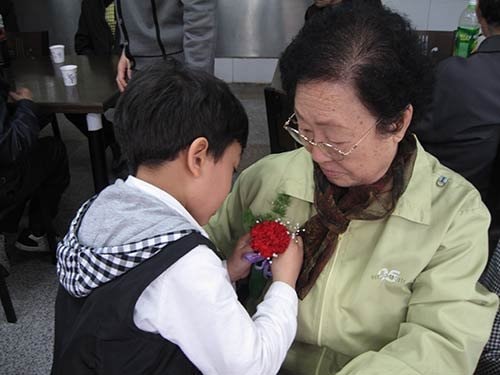 |
| On filial piety day, children in Korea pin red carnations on their mothers and grandmothers' chests. |
In addition to giving gifts, children will give carnations - flowers that show respect and gratitude of children to their parents. If unfortunately, the child is lost, the mother will put on white carnations herself.
Thailand
Khao Phansa Festival in July in Thailand is a major Buddhist festival to start the Buddhist Rains Retreat. On these occasions, Buddhist monks and nuns do not leave the temple, while people go to the temple to pray. Especially young people will shave their heads to become monks to show filial piety and accumulate merit for their parents.
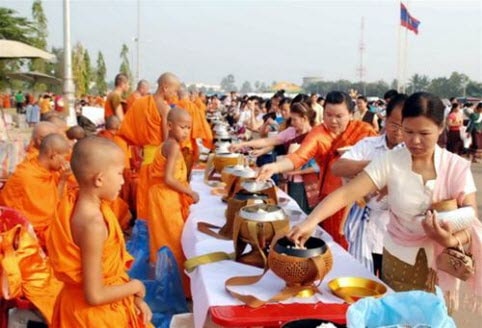 |
| Filial piety is one of the good activities of Khao Phansa festival, Thailand. |
Another Buddhist country in Laos also celebrates the Khao Phansa festival, with the aim of promoting goodness, educating Lao people to do good deeds, to be righteous, to cultivate themselves and accumulate virtue.
Japan
Japan does not have a Vu Lan festival, but they have a similar day called Obon, celebrated on August 15th of the Gregorian calendar. Obon is usually celebrated for 3 days, with the tradition of burning offerings on the last night. During the festival, Japanese people often release lanterns on the river as a guide for the souls of their deceased grandparents and ancestors.
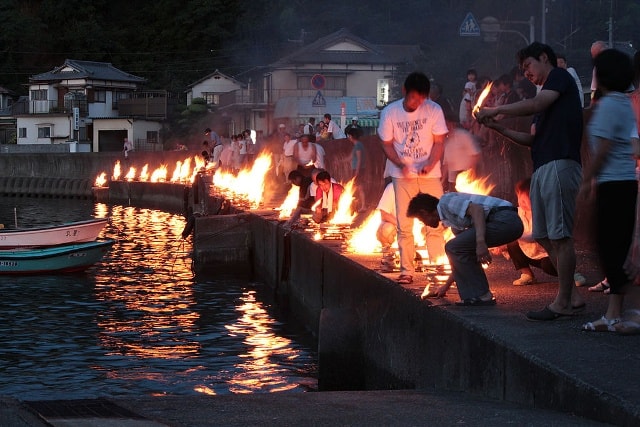 |
| Japanese people burn votive paper money on the riverbank at the end of the Obon festival. |
In addition, people also return to their hometowns to visit family and relatives, and organize longevity celebrations for their parents on Obon. Around the Obon festival are traditional activities in each locality such as dancing and singing. The Japanese believe that after Obon, the souls of their loved ones will be released in peace, so they dance to celebrate this event.
Malaysia
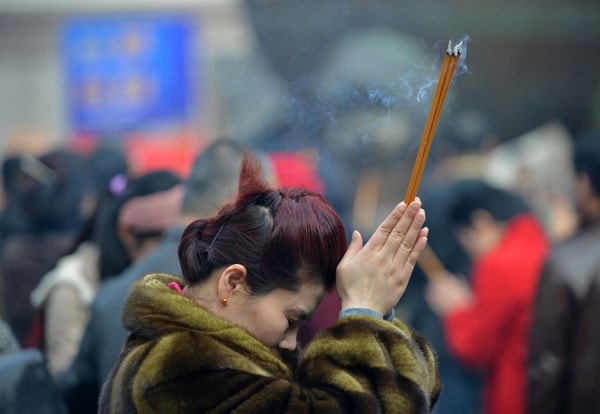 |
| In Malaysia, people often go to temples to burn incense for the deceased on Vu Lan occasion. |
Vu Lan Festival in Malaysia is also known as Ancestors Day or July Festival. On Vu Lan Day, people will stop all farm work and perform rituals to save the souls of the deceased such as visiting graves and burning incense to worship the deceased.
Quan Le - Chu Thanh
(Synthetic)
| RELATED NEWS |
|---|

.jpg)
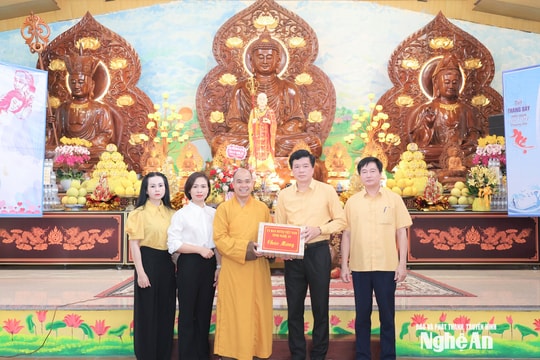

.jpg)
